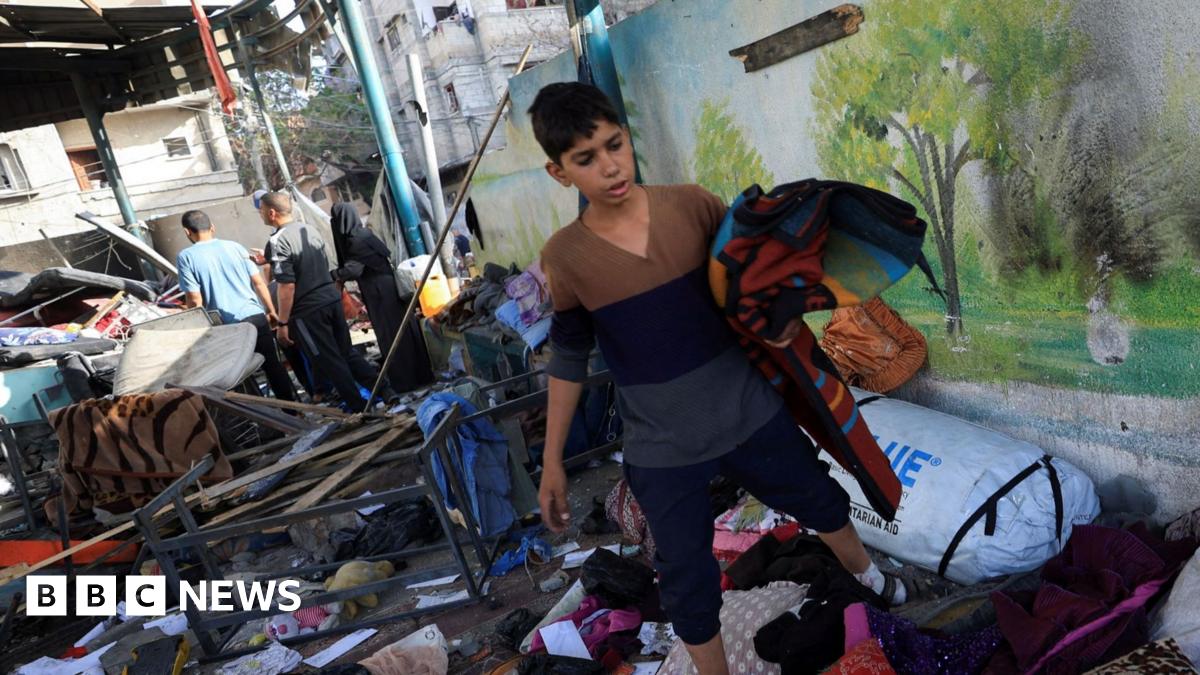The head of a new aid distribution program for Gaza, backed by the US and Israel, has resigned after weeks of controversy, citing concerns over impartiality and urging Israel to allow more aid into the blockaded enclave.
The
Gaza Humanitarian Foundation (GHF) is meant to run a new, tightly controlled, mechanism for aid deliveries into Gaza, but it has been criticized by the United Nations and others, who warn it risks further displacing Palestinians and endangering civilians.
US military veteran
Jake Wood has quit as GHF’s executive director after just a matter of weeks at the organization, publicly launched by the US in early May.
“I am proud of the work I oversaw, including developing a pragmatic plan that could feed hungry people, address security concerns about diversion, and complement the work of longstanding NGOs in Gaza,” said Wood in a statement.
“However, it is clear that it is not possible to implement this plan while also strictly adhering to the humanitarian principles of humanity, neutrality, impartiality, and independence, which I will not abandon,” he added.
The GHF said in a statement it was “disappointed” by Wood’s resignation, criticizing opponents who they said “have been more focused on tearing this apart than on getting aid in.”
And the organization said it will begin deliveries on Monday, with plans to scale up rapidly to feed “the full population in the weeks ahead,” it said on Sunday, adding that its “trucks are loaded and ready to go.”
The GHF’s plan for delivering aid has been approved by Israel and the US, which both countries say is designed to prevent Hamas from “stealing” aid.
It’s supposed to start operating four distribution sites, all located in
southern and central Gaza – but it has come under heavy criticism from top humanitarian officials, with the UN and other organizations refusing to work with the new group.
The UN warned that the fact the initial sites were only in
southern and central Gaza could be seen as encouraging Israel’s publicly stated goal of forcing “the entire Gazan population” out of northern Gaza, as Defense Minister Israel Katz put it earlier this month.
The US and the GHF have both been at pains to say that it is not an Israeli initiative – despite Israel’s support for it, and its role in designating and securing the distribution sites.
Speaking to CNN earlier in May, Wood had urged the UN and other groups to reconsider their opposition, admitting that the plan was “not perfect,” but would allow critical aid and food supplies to Gazans who desperately need it.
He added in May that he “unequivocally… will not be a part of anything that forcibly dislocates or displaces the Palestinian population.”
In his resignation statement on Sunday, he said he had sought to establish the foundation “as a truly independent humanitarian entity” during his time as its executive director.
Wood said he was “horrified and heartbroken at the hunger crisis in Gaza” and was “compelled to do whatever I could to help alleviate the suffering.”
“I urge Israel to significantly expand the provision of aid into Gaza through all mechanisms, and I urge all stakeholders to continue to explore innovative new methods for the delivery of aid, without delay, diversion, or discrimination,” Wood said.
The GHF is only expected to be able to feed about 60% of Gaza’s population in its first weeks.
A private American security contractor will be responsible for guarding its aid trucks from the Gaza border to the distribution sites and will not be involved in distributing the aid to civilians, Wood had previously said.







